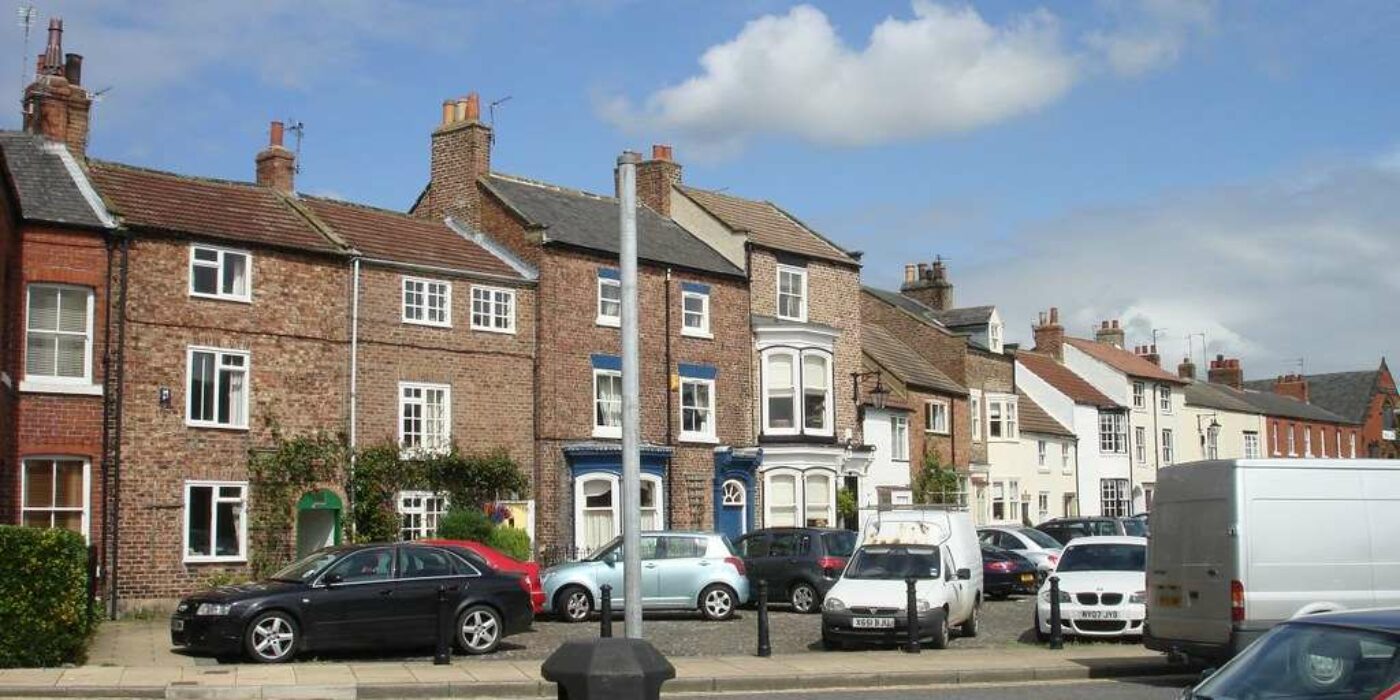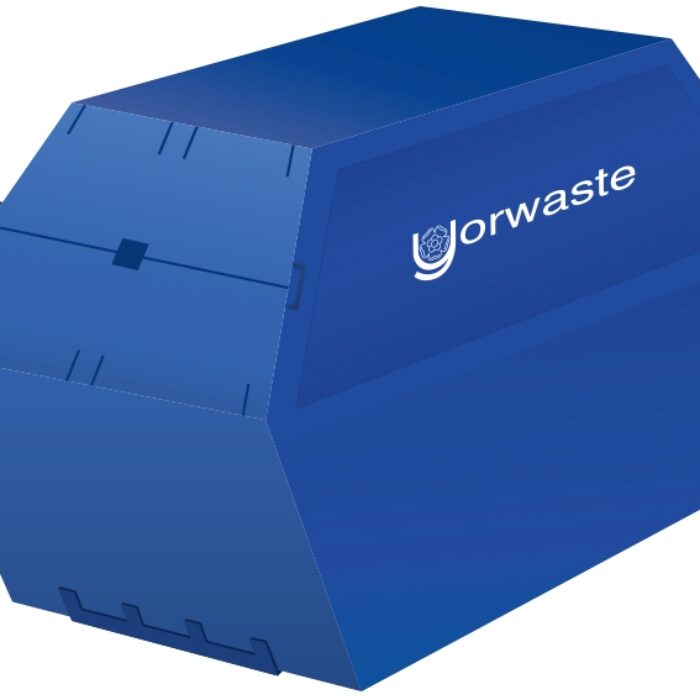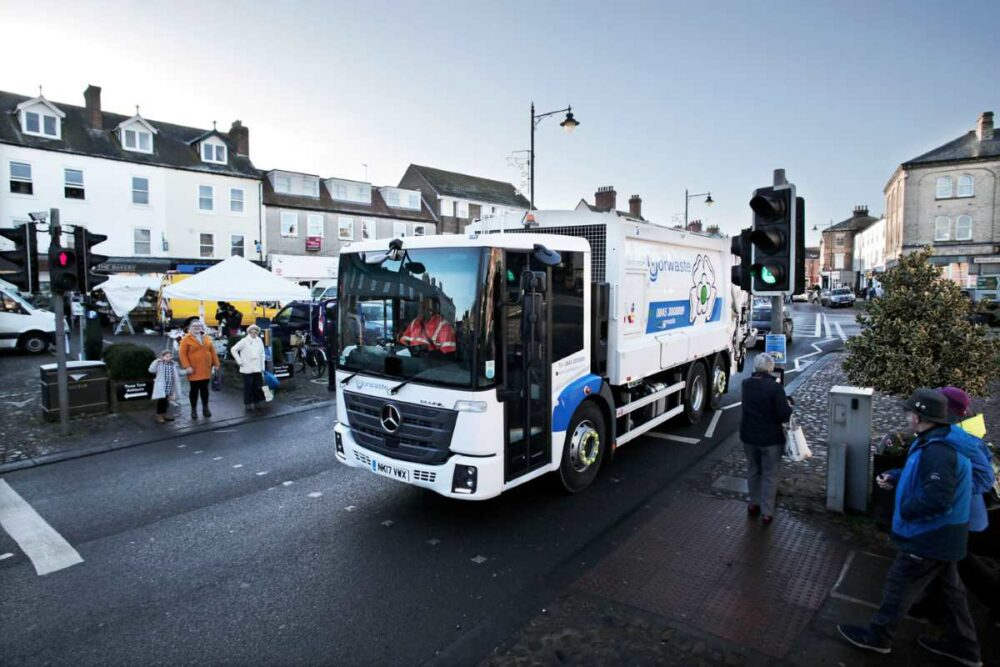Yorwaste sees waste as a resource, with a value within the circular economy. We aim to maximise that value which could lead to a rebate on your waste management costs.
North Yorkshire is home to a number of businesses within the manufacturing sector, providing the local economy with a valuable source of employment. From food processing to fabricated metals, many factories and manufacturing plants will produce large quantities of waste, which should be properly managed and recycled where possible.
Common by-products of factory processes include food, liquids, cardboard, solvents, wood and scrap metal. Incorrectly disposing of manufacturing waste can lead to fines as laid out in Section 34 of the Environmental Protection Act 1990. Additional regulations also apply to hazardous waste, as well as packaging waste regulations. To mitigate these issues and solve your waste management problems, Yorwaste has the equipment, skills and processes in place to properly dispose of your manufacturing waste. From dry mixed recycling to turning your food waste into fuel, Yorwaste has a recycling, reusing or disposal service to suit every material.
Our team will create a manufacturing waste audit of your site and present a solution best suited to the needs of your business. Helping you to reduce your carbon footprint, protect the environment and pay back to the local community along the way.
Types of Bins We Supply
Since every industry is different, and factories and warehouses produce various types of waste, it’s best to know what types of bins and containers we can supply that will fit the needs of the manufacturing business.
For smaller volumes, our bin sizes commonly start from a more conservative 240 litres and go right up to a large 1,100 litres. Thanks to the eco-friendly yet durable materials used to make them, our commercial wheelie bins are designed to last around 10 years, providing you with manufacturing waste solutions for prolonged periods of time.
Some of our bins also come with locks for added security of sensitive information which can be disposed of using our professional shredding service. These locks can also prevent nearby businesses or outside parties from using your bin for their waste disposal.
For customers with larger volumes of waste, we also offer a range of skips from 8 yards up to 35 yards, which may be used in conjunction with a compactor. Our advisors will be happy to discuss your specific requirements and guide you to the best possible solution.
Types of Businesses We Supply
North Yorkshire is home to many manufacturing plants, from stationery to plastic products, which means Yorwaste must cover a wide range of business needs. It’s likely that you’ll create large volumes of single-stream wastes and, whatever they are, we have a recycling-led solution for them. For more general business waste, glass bottle recycling and confidential information shredding, to turning your dry mixed waste into fresh new materials.
Yorwaste is closing the gap in waste disposal and increasing each company’s sustainability. And it’s not only manufacturing businesses we supply. Yorwaste can tackle any business need, from hospitality, restaurants and pubs to retail waste recycling. No matter the material, we have a service to collect, recycle or recover as much as possible in the North Yorkshire area.
Manufacturing waste collection that helps your business
- Your business is our priority. Choose a manufacturing waste collection service that suits your business’ needs. We have a range of wheelie bins and skips to fit the space you have and the needs of your business.
- Top service from day one. Our team offers a bespoke service from the get-go, from your free waste audit and quotation to a collection schedule suited to your needs and customer service support.
- Tailored to your needs. We’ll analyse your current waste output and tailor our services to your needs, making sure no material is wasted.
- Recycling where possible. We’ll ensure that your waste is properly managed, recycled and even reused where possible so you can reduce your carbon footprint as a company.
What is the Yorwaste Process?
You can save up to 20% when you come direct to us to recycle your company’s manufacturing waste. Get in touch with us for a free quote. We’ll offer you a free waste audit on site, discuss all waste types and give friendly waste advice on the day.
Once you’ve chosen your bin type and frequency, the rest is down to us! Simply load up your bins, keep a good eye on them to make sure they’re not broken or vandalised, and we’ll pick up your waste on a frequency to suit you.
Where does it go?
Initially, your waste will be transported to a local waste transfer station. Here, recyclable waste may be separated for onward transport to reprocessors, to be made into new products. Unrecyclable waste will be bulked up for transport to the county’s Energy from Waste facility, to be used as fuel to generate electricity.
We partner with Allerton Waste Recovery Park to ensure as much non-recyclable waste as possible is turned into energy for the local North Yorkshire area. We put the waste hierarchy at the very heart of our business, and do all we can to increase waste reduction, reuse and recycling where possible.
From community initiatives, such as Reuse Santa and Get Re-Cycling, to our team of recycling experts working closely with businesses to help their overall waste management strategies and maximise their recycling efforts.
The energy from recovered waste in Yorkshire currently powers around 40,000 homes in the Yorkshire area. By incinerating non-recyclable waste, we’re able to convert rubbish into energy!
The ash that is produced during this process is also recycled to create materials for the construction industry, further closing the gap in waste production in the Yorkshire area. It’s even estimated that 2.5% of the UK’s energy is powered by recycled materials, so why not join the cause and be an advocate for environmentally friendly waste management?
Why Choose Yorwaste?
- North Yorkshire commercial waste experts. Get in touch with a local team that can quickly get to grips with your problem and find the best solution to remove your manufacturing waste. Deal with a locally-based team from start to finish who knows your area!
- Free same-day quotes. Based on your requirements and delivered quickly. We understand that business owners and managers are busy people! We won’t waste your time or leave you waiting. Once we have all the information we need from you, we’ll get in touch with a free quote, so you can make an informed decision.
- Free waste audits. We know that estimating your waste output isn’t always a straight-forward process. Our free waste audits give you a full overview of how much waste you’re producing and what you can do to effectively dispose of it.
- Efficient and environmentally friendly. Our transfer facilities process hundreds of thousands of waste each year, ensuring that the manufacturing waste produced by North Yorkshire’s businesses is correctly and efficiently processed.
Legal Compliance
The Waste (England and Wales) Regulations 2011 require businesses to;
- Sort and store waste safely and securely
- Ensure that you or your waste carrier has a valid waste carriers license and are registered to dispose of waste.
Failure to comply can risk a criminal conviction, fines, and seizure of assets. By signing up to Yorwaste you are meeting your obligation without the hassle of navigating through the legislation yourself.




